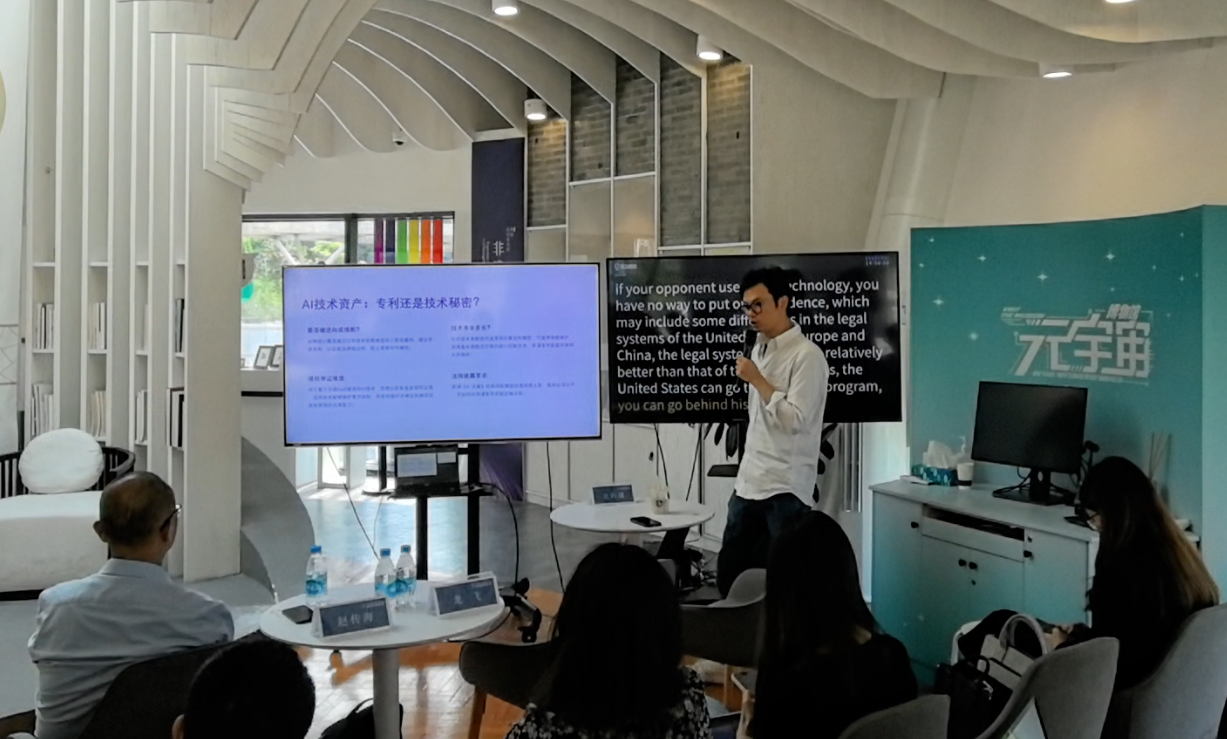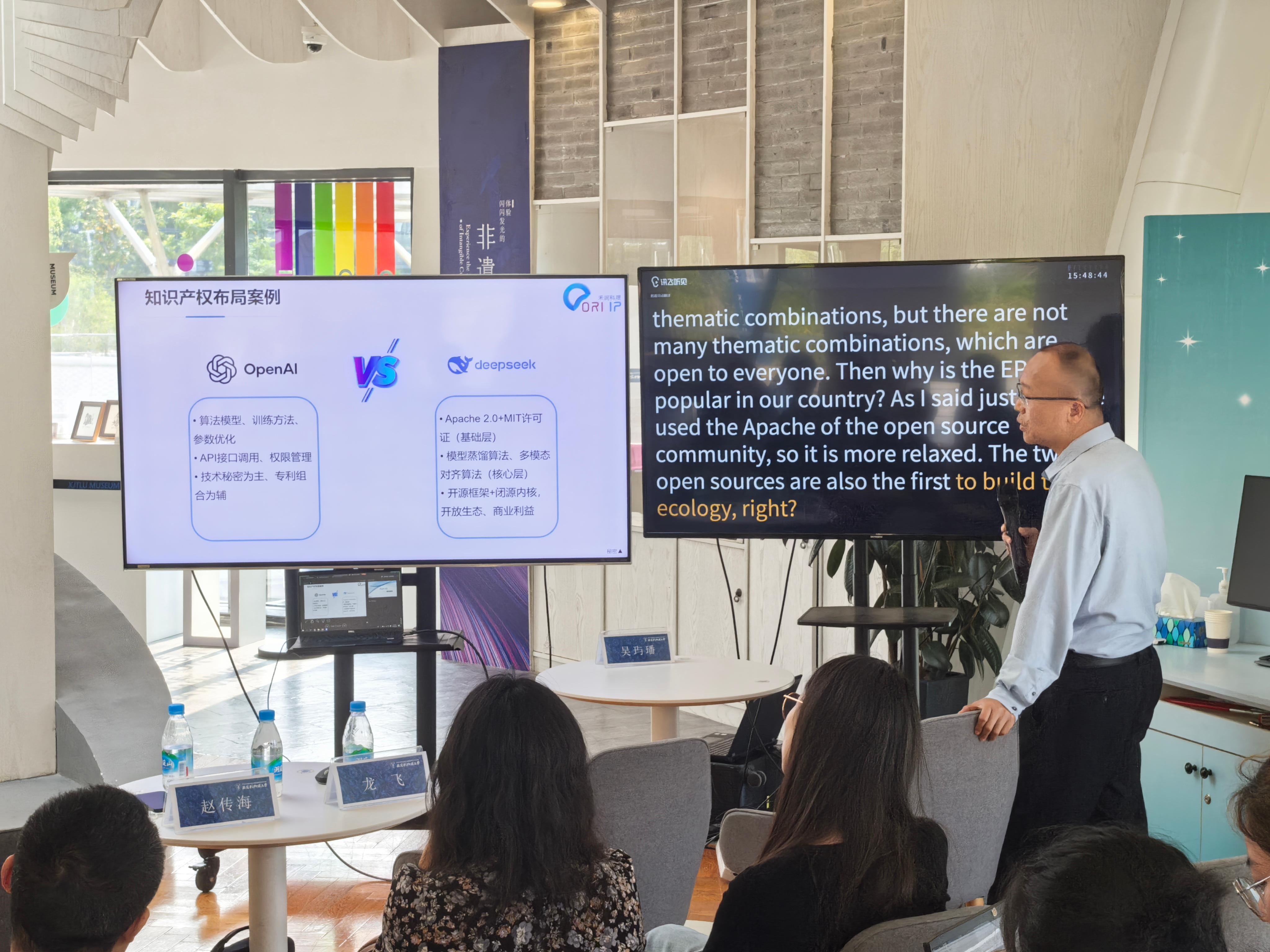On April 28, 2025, the "IP Inspire XJTLU" AI Patent Portfolio Strategy Salon, jointly organized by the Intellectual Property Information Service Center and Library of Xi’an Jiaotong-Liverpool University (XJTLU), concluded successfully at the XJTLU South Campus Hub in Suzhou. Aligning with the theme of the National Intellectual Property Publicity Week, "Intellectual Property and Artificial Intelligence," the event attracted numerous corporate representatives, academics, and intellectual property professionals to discuss cutting-edge strategies for AI technology protection and risk management.
The salon featured in-depth presentations by three industry experts, focusing on AI-driven R&D innovation, patent strategies, and enterprise risk management.

AI-Empowered R&D Innovation: The "Intelligent Eye" for Technology Intelligence
Yufan Wu, Senior Trainer at Patsnap, delivered a keynote titled "AI-Empowered R&D Innovation." She explained how AI technologies can rapidly pinpoint global patents, identify technical gaps, and monitor competitor activities. Highlighting Patsnap’s AI platform, she emphasized that AI not only accelerates R&D decision-making cycles but also enables one-stop intelligent analysis and optimization of technical solutions, significantly reducing time spent on patent evaluations.

Patent Strategy: Balancing Offense and Defense in Portfolio Design
Fei Long, Partner at Suzhou WISPRO IP, centered his talk on "AI Patent Strategies." By contrasting software copyrights with patent protections, he underscored the importance of a "dual-track approach." Through case studies, he proposed a strategic framework combining "core technology patents + peripheral technology extensions + global portfolio". He also warned against over-reliance on "black-box algorithm protection," advising firms to enhance patent approval rates by integrating hardware innovations and quantifiable technical metrics.

Risk Management in Practice: Legal Boundaries of AI-Generated Content
Chuanhai Zhao, Executive Partner at ORI IP, analyzed copyright disputes and evidentiary challenges surrounding AI-generated content, citing high-profile cases like Tencent’s "Dreamwriter" and the AI-generated image "Spring Breeze" litigation. He recommended that enterprises build robust evidence chains by maintaining creation logs and revision records. Additionally, he advocated for a hybrid protection model combining "trade secrets with patents" to address legal risks amid rapid technological evolution.
The event not only provided participants with relevant knowledge, but also promoted exchange between those in university and IP professionals. IPISC will continue to work for IP promotion and training, provide better IP information services and support to students, faculty and industry, facilitating the development of sci-tech innovation and IP protection.




